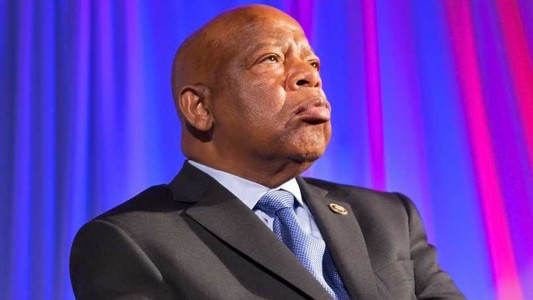Widgetized Section
Go to Admin » Appearance » Widgets » and move Gabfire Widget: Social into that MastheadOverlay zone
Civil Rights and the DNC
The views expressed are those of the author and do not necessarily reflect the views of ASPA as an organization.
By Laura Caccioppoli
August 2, 2016
This past week, my home was host to the Democratic National Convention (DNC). The last time the DNC was in Philadelphia was 68 years ago, in 1948 (as an interesting side note, the Republic National Committee also met in Philadelphia that year). Harry Truman was running for president, after having sat in the Oval Office since the death of Franklin Delano Roosevelt in April 1945. Unfortunately for Truman, his approval ratings were incredibly low, 36 percent. Many in the Democratic Party wanted Dwight D. Eisenhower as the Democratic candidate, but he backed away from the offer.
Truman noted the emerging importance of civil rights and appointed a committee on civil rights in 1946. The Democratic party would often talk the talk on civil rights, but when it came to enacting substantial policy changes that would promote equality, they fell short. Much of the issue was related to party unity. After all, the southern Dixiecrats had an important role electorally. With Republicans seizing control of Congress in the 1946 midterm elections, party leaders were concerned about alienating the southern Democrats who were anti-civil rights.
 At the party’s convention in Philadelphia, progressive Democrats, led in part by Americans for Democratic Action’s (ADA) and their local Southeastern Pennsylvania Chapter, staged a fight to include civil rights on the party platform. Truman had already express support for improving civil rights. In February 1948, he gave an impassioned speech highlighting 10 objectives for improving equality in the United States. Although not all of these objectives related directly to black Americans (some dealt with Japanese-Americans, and Statehood for Hawaii and Alaska), he laid the framework for the Civil Rights Act by calling to end disenfranchisement, federal protection against lynching, and prohibiting against discrimination in interstate transportation, and employment.
At the party’s convention in Philadelphia, progressive Democrats, led in part by Americans for Democratic Action’s (ADA) and their local Southeastern Pennsylvania Chapter, staged a fight to include civil rights on the party platform. Truman had already express support for improving civil rights. In February 1948, he gave an impassioned speech highlighting 10 objectives for improving equality in the United States. Although not all of these objectives related directly to black Americans (some dealt with Japanese-Americans, and Statehood for Hawaii and Alaska), he laid the framework for the Civil Rights Act by calling to end disenfranchisement, federal protection against lynching, and prohibiting against discrimination in interstate transportation, and employment.
Hubert Humphrey, ADA cofounder and vice chairman, also fought on behalf of civil rights – delivering at the DNC one of the best political speeches of all time. Through the work of ADA, Humphrey and Truman, civil rights made it onto the Democratic Party platform but not without the Mississippi and Alabama delegations walking out of the convention. While this is often considered the moment the Democratic Party took its first progressive turn, the words Humphrey spoke in 1948 could have easily been given today:
Truman and the Democrats were able to use civil rights and the Democratic platform as a way to mobilize voters to win upset victories in states such as Illinois and Ohio, and ultimately win the election. In fact, Truman’s win was so unpredicted, the Chicago Tribune had actually printed headlines “Dewey Defeats Truman” before the votes were in!
Our nation is once again engulfed by discrimination against African-Americans and other racial minorities, lesbian, gay, bisexual and transgender(LGBT) persons and Muslims. In the words of Truman’s vice president, Alben Barkley:
The Republicans have proposed a platform which further discriminates against LGBT individuals, and immigrants. A platform that continues to deny women equality by limiting their ability to say what it does to their bodies. In a complete dichotomy, the Democratic party has once again adopted one of the most progressive party platforms it has ever had. Even our nominee, Hillary Clinton is herself a testament to the progress we’ve made. In 2016, we are finally witnessing the first female presidential nominee from a major political party.
And so despite all of the fear, intolerance and hateful language we’ve seen circulating this year, I remain optimistic that with somber reflection of where we have been and where we are now that we can continue to move forward to where we would like to be.
Author: Laura Caccioppoli is a millennial and a Ph.D. in Health Policy student at University of the Sciences. She has an MA in political science and a graduate certificate in nonprofit management from Villanova University. Laura serves on the board for The Consortium in Philadelphia and Americans for Democratic Action, Southeastern Pennsylvania Chapter. Her research interests are in health and food policy, cultural competency and social justice.


Follow Us!